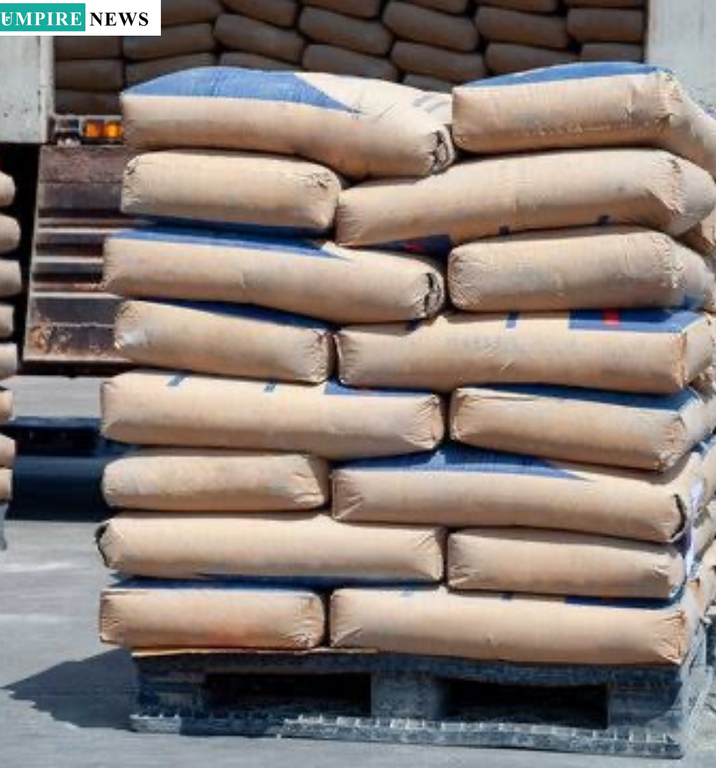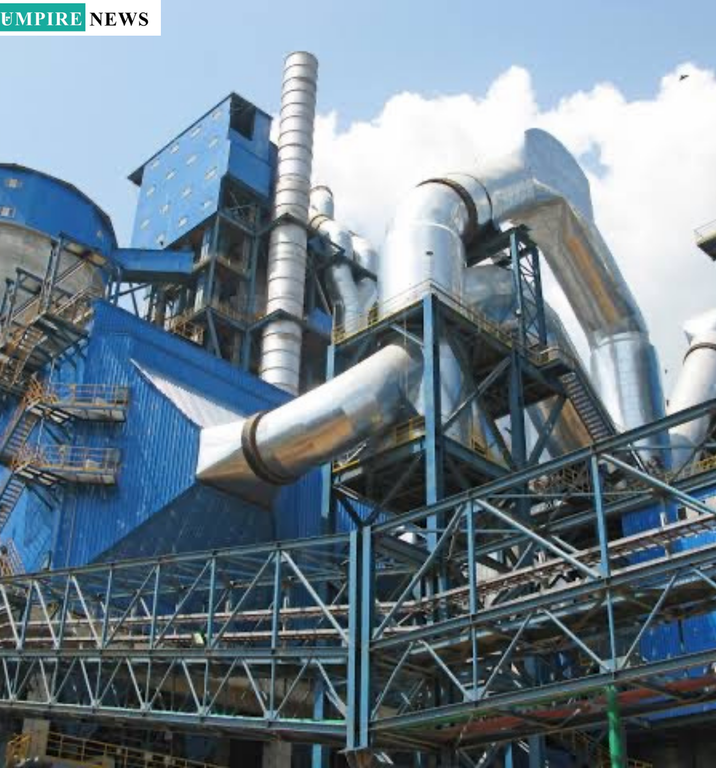Cement producers in Nigeria are continuing to reap significant financial rewards despite the challenging economic conditions and a notable decline in consumer purchasing power.
Recent operational reports from leading companies in the sector reveal that sales volumes have increased, alongside substantial growth in sales revenue and profits.
This strong performance comes in the face of a harsh operating environment, characterized by inflationary pressures, foreign exchange volatility, rising production costs, and shrinking consumer spending power.
However, the cement industry continues to flourish, suggesting that a segment of the population retains strong purchasing power, allowing them to spend on non-essential items like cement, which is critical for construction and infrastructure development.

Recent financial findings from Financial Vanguard show that, although the broader macroeconomic challenges have taken a toll, the demand for cement remains robust, and prices have remained elevated.
The retail price of cement has increased substantially, with a 50kg bag now selling for between N7,400 and N8,000, up from around N6,000 a year ago.
Despite the high costs, demand for cement has continued to rise, indicating a strong market for the product, even among those for whom it is considered non-essential.
The three major players in the cement industry—Dangote Cement Plc, BUA Cement Plc, and Lafarge Africa Plc—have all reported remarkable financial performance in the first half of 2024.
Sales volume across all three companies has seen significant growth, contributing to a 76.6% surge in net sales revenue in the first half of the year, reaching N2.419 trillion, compared to N1.049 trillion in the same period in 2023.
The increase in sales volume, coupled with higher prices, has driven this impressive revenue growth.
Dangote Cement, the market leader, saw a 3.8% increase in sales volume during the six-month period, while BUA Cement and Lafarge Africa also recorded strong results.
Investment analysts remain optimistic about the sector’s future performance, projecting strong results for the rest of 2024.

Analysts from CardinalStone Finance, a Lagos-based investment house, forecast a 14.6% year-on-year rebound in combined sales volumes for the three major players, predicting that total output will rise to 32.8 million metric tons (MMT), with capacity utilization expected to increase to 52.2% from 50.4% in 2023.
Though industry output volume declined by 3.5% year-on-year in 2023 due to factors like the poorly implemented Naira redesign policy and disruptions caused by the election cycle, experts expect this trend to reverse as market conditions stabilize.
Breaking down the financial results, Dangote Cement achieved the highest net sales among the three companies, with an impressive 85.1% increase, reporting N1.76 trillion in sales revenue for the first half of 2024, compared to N950.83 billion in the same period last year.
This was followed by BUA Cement, which posted N363.94 billion in sales, reflecting a 64.6% increase from N221.07 billion in 2023.
Lafarge Africa also saw substantial growth, with sales revenue rising by 45%, from N197.68 billion to N295.58 billion in the same period.
In terms of sales volume, Dangote Cement led the charge with a 3.8% overall volume increase, selling 13.934 million metric tons (MMT) in the first half of 2024, compared to 13.420 MMT in the same period last year.
Notably, Dangote’s Nigeria operations recorded a 10.93% volume increase, rising to 8.994 MMT from 8.108 MMT in H1 2023.
Arvind Pathak, Chief Executive Officer of Dangote Cement, attributed this strong performance to improved operational efficiency and a recovery from the economic disruptions of the previous year.
He stated, “We effectively navigated macroeconomic headwinds to deliver positive results in the first half of the year. Group volumes were up 3.8%, with our Nigeria operations achieving double-digit volume growth of 10.9%.
This growth was driven by improved efficiency across our operations and supported by increased market activity levels compared to the election year and cash crunch in 2023.”
BUA Cement, with its capacity expansion from a newly commissioned 6.0 million metric tons (MT) plant, also expects a significant increase in sales volume in 2024.
The company had already reported a 4.8% increase in sales volume to 6.6 MMT in 2023, a result of the reduction in ex-factory prices. The company anticipates further growth in the coming months.
Lafarge Africa’s outlook for the sector remains positive as well. Lolu Alade-Akinyemi, the Group Managing Director/CEO of Lafarge Africa, expressed confidence in the continued growth of Nigeria’s infrastructure and construction sectors, despite inflationary pressures on purchasing power.
He added, “We will continue to maximize volume opportunities across our markets and actively manage our costs.
The company remains committed to its sustainability ambitions and strategy of ‘Accelerating Green Growth’ through innovative building solutions and delivery of stakeholder value.”
Investors are also reacting favorably to the cement companies’ stocks, with expectations of increased capacity, strong volumes, and favorable prices driving optimism. The industry’s return on investment (ROI) averaged 51% in the second half of 2024.
Dangote Cement, in particular, has delivered impressive returns of 105.3%, with its share price rising from N319.90 at the beginning of the year to N656.70 at the end of September.
BUA Cement has recorded a 40.4% return, while Lafarge Africa has posted an 8.1% return.
Financial analysts attribute the cement sector’s strong performance to increased construction activity, both from the private sector and government initiatives.
Analysts at Cordros Capital, a prominent investment firm, noted that the federal government’s capital expenditure allocation of N13.77 trillion has spurred demand for cement, particularly for infrastructure projects like housing and road construction.
They believe the robust demand from both public and private sector investments will drive continued growth in sales volumes, with projections of 3.1% year-on-year growth for Dangote Cement, 10.4% for Lafarge Africa, and 21.7% for BUA Cement in 2024.
Chinazom Izuorah, Senior Associate at Parthian Partners, added that recent developments, policy changes, and government initiatives—such as the awarding of several construction contracts—have also supported the growth in cement sales.
“There’s been news of several construction-related contracts being awarded and the transition to utilizing cement in the construction of roads in Nigeria. These all support the noted sales growth,” Izuorah said.
Victor Chiazor, Head of Research at FSL Securities, echoed these sentiments, attributing the sales growth to higher activity levels compared to the previous year when the election cycle and cash crunch significantly stifled businesses.
The future looks promising for Nigeria’s cement industry, with a strong market outlook and continued support from both government and private sector investment.

































